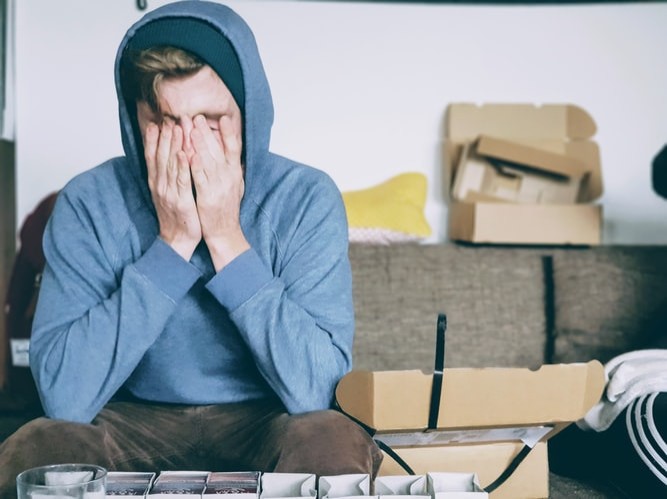When to Get Tested for PTSD: Signs and Symptoms to Watch For

Whether it's from being active military, a bombing in your hometown, or a shooting at the local theater, the world certainly has given everyone plenty of reasons for the affected to suffer from PTSD, especially in the last couple of years. Think about how rough the COVID-19 pandemic has been, that has to leave some scars.
Recently, a building collapse has the topic of PTSD in the news again. That's because the survivors of the incident, those who live in the area and even the family members of the victims might be left with deep scars that manifest in the form of PTSD. In the past, the condition wasn't even recognized as a real problem, but studies have started to chip away at that myth and more people are learning that it is real and can be very dangerous.
The trick is to know when you're suffering from the disorder by watching for the signs and symptoms. You can then begin a treatment plan by taking a PTSD test as soon as possible. Here are some signs that you may want to watch out for if you've had something traumatic happen in your life.
Flashbacks
Someone with PTSD will often experience flashbacks to the traumatic event that caused the issue. These flashbacks are usually extremely vivid, causing the person to relive the event over and over again. They can cause the same fear, horror, and helpless feelings that the real event caused. If you're having flashbacks, it's important to get help for your condition right away.
Hyperarousal
One symptom of PTSD is hyperarousal, which in a nutshell means that you become extremely sensitive and on alert to the point of it being painful. The symptoms of hyperarousal are listed below.
- Startling easily
- Having problems sleeping
- Having angry outbursts for no apparent reason
- Having extreme anxiety and being stressed all the time
- Being tense and on edge all of the time
This can make you feel afraid and nervous. Please reach out to your healthcare provider if you feel this way.
Avoiding Reminders of the Incident
If you find yourself avoiding any reminders, conversation, or visiting the site of the traumatic event, then you could very well be suffering from PTSD. This isn't to say that not wanting to go back to the site or talk about the issue is something that they get over in time. However, if you absolutely refuse to admit the incident ever happened or will never go anywhere near that side of town, it is possible that PTSD is the cause, and you need to get help.
Substance Abuse
Someone who has gone through a very traumatic event often self-medicates to numb the pain and even to forget for a short length of time. If you find yourself doing drugs or drinking more than you usually do, then this may be why. Substance abuse is very common among PTSD sufferers and needs to be addressed right away.
If you're finding that you're turning to drugs or alcohol to forget or numb the pain, take a PTSD test right away, then contact a reputable doctor to help you get treatment.
Feeling Guilty
Many PTSD sufferers suffer from extreme guilt over surviving a traumatic event such as a car accident, shooting, or explosion that other people didn't. While some feelings of guilt are to be expected, extreme feelings of guilt are one of the strongest indicators that you could be suffering from the disorder.
If the feelings of guilt are invading your entire life, then it's time to get help as it could stop you from moving on with your life. Ignoring these feelings without seeking professional treatment could ultimately manifest in another serious mental illness like depression, anxiety or manic depression. While you will never forget the ones that were lost, you do need to try to put the trauma behind you and move on with living.
Feelings of Isolation
If you feel like you're isolated, never want to go out with family and friends, and that no one understands what you're going through, this is a sign of depression and could very well be a sign of PTSD as well. You don't need to be alone with your thoughts, as they can lead you to dark places you might not be able to come out of.
These are just a few of the signs and symptoms of PTSD you want to look out for after a traumatic event. If you have symptoms of PTSD, please get help somewhere, and no that you're not alone.
Subscribe to Latin Post!
Sign up for our free newsletter for the Latest coverage!











